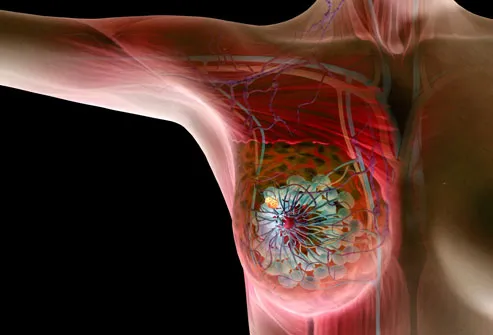“curcumin reverses chemo-resistance and sensitizes cancer cells to chemotherapy and targeted therapy in breast cancer”
Aromatase Inhibitors (Tamoxifen, anastrozole, exemestane and letrozole ) has been shown to be effective for breast cancer treatment and prevention. Unfortunately, like many chemotherapy regimens, toxicity of aromatase inhibitors can cause side effects.
If you are worried about breast cancer you probably think about BC prevention yet you don’t want to live with the pain and aches common with AI administration.
Consider:
- Lowering the dose of the AI
- Enhancing AI action with curcumin an integrative therapy
There are now a number of studies discussed on PeopleBeatingCancer that establish that curcumin can both enhance the anti-cancer action of certain chemotherapies as well as reduce cancer proliferation. The study linked below discusses how “curcumin reverses chemo-resistance and sensitizes cancer cells to chemotherapy and targeted therapy in breast cancer (BC).”

The devil is in the details as the saying goes. I supplement with a form of curcumin that has been shown to be much more bioavailable (absorbable in the blood). I believe using this formula is essential for us cancer patients. I use and recommend Life Extension Super Bio Curcumin.
I am a cancer survivor and cancer coach. If you are interested in learning more about evidence-based, non-toxic BC therapies please scroll down the page, post a question or comment and I will reply to you ASAP.
Thank you,
David Emerson
- Cancer Survivor
- Cancer Patient
- Director PeopleBeatingCancer
Recommended Reading:
“Purpose: Tamoxifen (aromatase inhibitor) administered for 5 years at 20 mg/d is effective in breast cancer treatment and prevention, but toxicity has limited its broad use. Biomarker trials showed that 5 mg/d is not inferior to 20 mg/d in decreasing breast cancer proliferation. We hypothesized that a lower dose given for a shorter period could be as effective in preventing recurrence from breast intraepithelial neoplasia but have a lower toxicity than the standard dose.
Patients and methods: We conducted a multicenter randomized trial of tamoxifen, 5 mg/d or placebo administered for 3 years after surgery in women with hormone-sensitive or unknown breast intraepithelial neoplasia, including atypical ductal hyperplasia and lobular or ductal carcinoma in situ. The primary end point was the incidence of invasive breast cancer or ductal carcinoma in situ.
Results: Five hundred women 75 years of age or younger were included. After a median follow-up of 5.1 years (interquartile range, 3.9-6.3 years), there were
- 14 neoplastic events with tamoxifen and
- 28 with placebo
which resulted in a 5-year number needed to treat of 22.
Tamoxifen decreased contralateral breast events by 75%. Patient-reported outcomes were not different between arms except for a slight increase in frequency of daily hot flashes with tamoxifen.
There were 12 serious adverse events with tamoxifen and 16 with placebo, including one deep vein thrombosis and one stage I endometrial cancer with tamoxifen and one pulmonary embolism with placebo.
Conclusion: Tamoxifen (aromatase inhibitor) at 5 mg/d for 3 years can halve the recurrence of breast intraepithelial neoplasia with a limited toxicity, which provides a new treatment option in these disorders.
“Abstract: Curcumin, a principal component of turmeric (Curcuma longa), has potential therapeutic activities against BC through multiple signaling pathways. Increasing evidence indicates that curcumin reverses chemo-resistance and sensitizes cancer cells to chemotherapy and targeted therapy in breast cancer.
To date, few studies have explored its potential antiproliferation effects and resistance reversal in antiestrogen-resistant breast cancer. In this study, we therefore investigated the efficacy of curcumin alone and in combination with tamoxifen in the established antiestrogen-resistant breast cancer cell lines MCF-7/LCC2 and MCF-7/LCC9.
We discovered that curcumin treatment displayed anti-proliferative and pro-apoptotic activities and induced cell cycle arrest at G2/M phase. Of note, the combination of curcumin and tamoxifen resulted in a synergistic survival inhibition in MCF-7/LCC2 and MCF-7/LCC9 cells. Moreover, we found that curcumin targeted multiple signals involved in growth maintenance and resistance acquisition in endocrine resistant cells. In our cell models, curcumin could suppress expression of pro-growth and anti-apoptosis molecules, induce inactivation of NF-κB, Src and Akt/mTOR pathways and downregulate the key epigenetic modifier EZH2.
The above findings suggested that curcumin alone and combinations of curcumin with endocrine therapy may be of therapeutic benefit for endocrine-resistant BC.”
APPIP ERROR: amazonproducts[
AccessDeniedAwsUsers|The Access Key Id AKIAJAJ37JVNL7OUU4CA is not enabled for accessing this version of Product Advertising API. Please migrate your credentials as referred here https://webservices.amazon.com/paapi5/documentation/migrating-your-product-advertising-api-account-from-your-aws-account.html.
]




